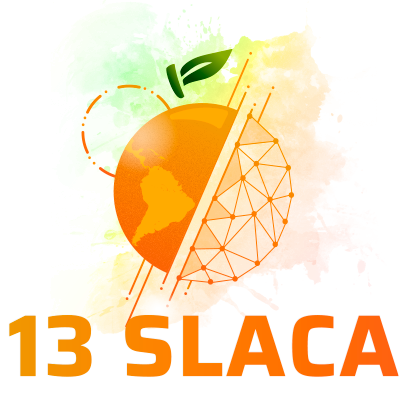Anais do Simpósio Latino Americano de Ciências de Alimentos
Anais do 13º Simpósio Latino Americano de Ciência de Alimentos
STABILITY OF CHITOSAN-WHEY PROTEIN NANOPARTICLES CONTAINING TRYPSIN INHIBITOR ISOLATED FROM TAMARIND SEEDS UNDER SIMULATING GASTROINTESTINAL TRACT CONDITIONS
Como citar esse trabalho?
Para citar este trabalho use um dos padrões abaixo:
Como citar esse trabalho?
Several studies have shown the beneficial in vivo effects of isolated Trypsin Inhibitor from Tamarind (Tamarindus indica L.) seeds (TTI), as the improvement in biochemical parameters. Based on this, alternatives were sought to intensify the effect of TTI through nanoencapsulation, which is capable of promoting protection, controlled release, and potentialize the bioactive effect. The present study evaluated the in vitro stability of Trypsin Inhibitor Isolate from Tamarind (TTI) seeds nanoencapsulated against simulating physiological conditions of the gastrointestinal tract. The nanoencapsulation was performed by the nanoprecipitation method using an aqueous solution containing TTI, purified chitosan, and isolated whey protein (1: 2: 2 w / w / w), Tween 80, and absolute ethanol. The stability of nanoparticles (ECW) was investigated against the in vitro gastrointestinal tract simulated conditions in the oral, gastric, and intestinal phases of digestion, and monitored by antitrypsin activity, protein profile in Sodium Dodecyl Sulfate Polyacrylamide Gel Electrophoresis (SDS-PAGE), and by High-Performance Liquid Chromatography (HPLC). The results showed that in the gastric phase, the ECW maintained the antitrypsin activity at 95.5%, while the TTI was hydrolyzed, losing the activity and protein peak observed by HPLC. It is found that, in the presence of intestinal enzymes, the ECW and TTI were susceptible to the assay conditions, as confirmed by SDS-PAGE and HPLC. Therefore, it is believed that the gradual release of TTI to be digested in the gastric phase and released in the intestinal phase may contribute to its bioactive activities as a hypoglycemic agent, improving the biochemical parameters in vivo. It is emphasized the importance of the study due to its innovative and unprecedented character, and it can be seen that nanoencapsulation promoted protection for TTI, gradual release in the desired condition.
- 1 Programa de Pós-Graduação em Nutrição / Departamento de Nutrição / Universidade Federal do Rio Grande do Norte
- 2 Universidade Federal do Rio Grande do Norte
- 3 Food Processing Group / Life Science Department / International Iberian Nanotechnology Laboratory
- 4 Universidade do Vigo
- 5 Departamento de Nutrição / Universidade Federal do Rio Grande do Norte
- 5. Engenharia de processos e tecnologias emergentes (ET)
Discussões Científicas de Qualidade
Com ~200 mil publicações revisadas por pesquisadores do mundo todo, o Galoá impulsiona cientistas na descoberta de pesquisas de ponta por meio de nossa plataforma indexada.
Confira nossos produtos e como podemos ajudá-lo a dar mais alcance para sua pesquisa:
Como citar esse proceedings?
Esse proceedings é identificado por um DOI , para usar em citações ou referências bibliográficas. Atenção: este não é um DOI para o jornal e, como tal, não pode ser usado em Lattes para identificar um trabalho específico.
Verifique o link "Como citar" na página do trabalho, para ver como citar corretamente o artigo

